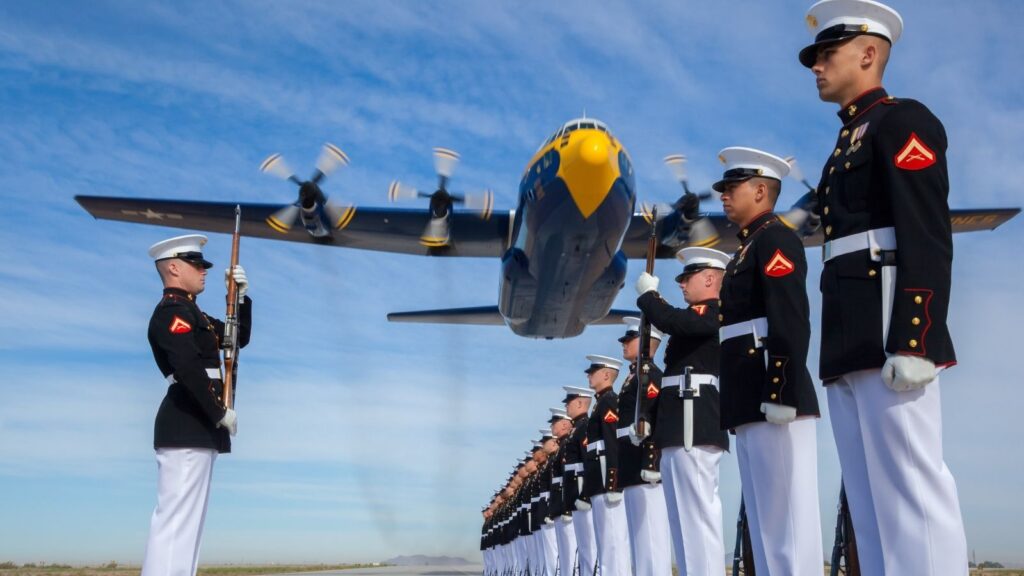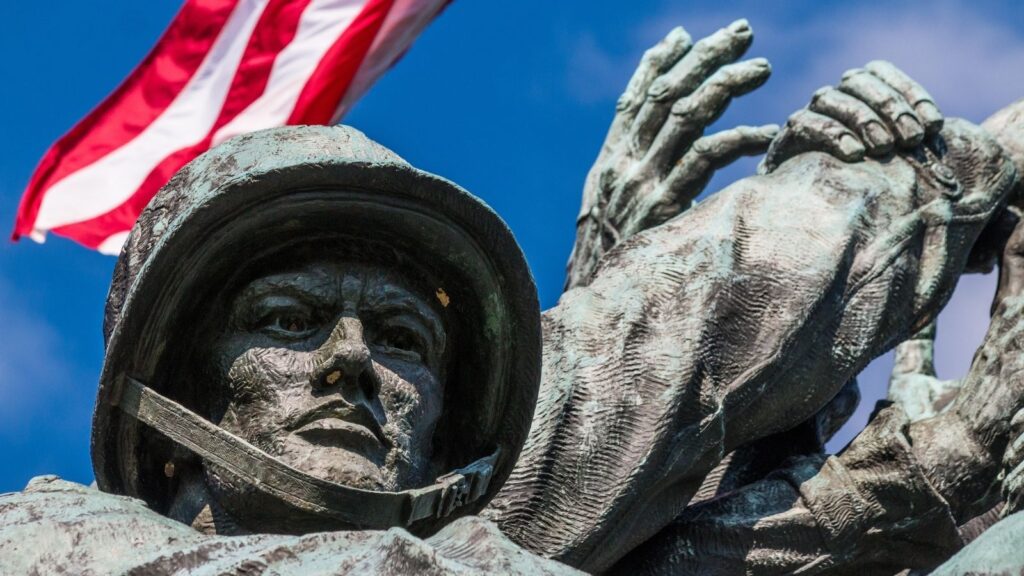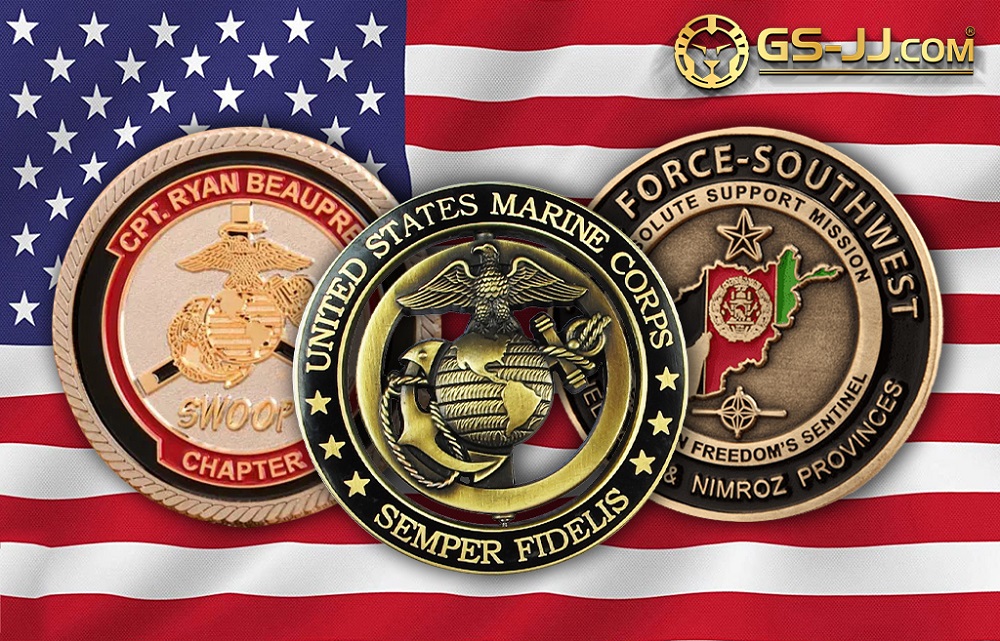Table of Contents
The United States Marine Corps is regarded all over the world as the pinnacle of discipline and leadership. US Marines are dedicated, hardworking, and resourceful, but what sets them apart is their leadership. The USMC is more than a conglomerate of trained soldiers – it’s a mindset. They have marine corps leadership.
To be a US marine requires commitment, drive, and conviction to achieve personal growth; it requires you to be a leader. There are specific qualities the USMC looks for in their leaders and certain leadership traits those leaders must follow.
How To Be a Marine Leader
The first step to becoming a leader in the USMC is to know your purpose. The United States Marine Corps exists to protect your home and country, and as a member of the USMC, this purpose extends to you. Learn to distinguish between purpose and drive. Though you may have joined the USMC to protect your loved ones or to advance yourself on a personal level, your purpose is your mission and part of the marine corps leadership principle.
Always stay motivated
Like the Marine Corps Challenge Coin that appeared in World War I, a symbol of gratitude, honor, or loyalty. It represents countless hours of dedication and sacrifice. Show off your pride as a Marine with this striking coin and keep yourself motivated at all times. Such challenging coins with special memories should be priceless souvenirs. Custom graphics and handed down to family members continue to remind each generation of the importance of serving in the military. Gifting custom challenge commemorative coins as a USMC commander can further improve morale and honor service. It’s a great way to recognize each soldier’s special achievements and heroic deeds. This is a great sign of achievement.
The next step in becoming a leader is to learn the 11 leadership principles and 14 leadership traits of the USMC. These traits and principles are the core value of a good leader. They are the guide you should follow and focus on to improve yourself.
The 11 Marine Corps Leadership Principles
Every Marine should be aware of and strive to live up to the 11 leadership principles of the USMC. These qualities make for good leadership qualities and also make for good Marines. It is essential to learn and practice these principles with your fellow marines. These leadership abilities are developed by USMC.
1. Be Technically and Tactically Proficient
A good leader, as well as a good Marine, knows the craft. Your knowledge and leadership skills must be at an innate level to lead so that you can put more of your energy into leading. Seek knowledge, keep updated, and maintain training. No one will follow a leader who is incompetent or unskilled.
2. Know yourself and seek self-improvement
To be a leader is to grow and change. You need to know what your strengths and weaknesses are and work to improve them. A good leader is adaptable with his leadership skill set, is hardworking, and knows their limits. If you can identify the good and bad qualities in yourself and work to fix them, that will help you do the same to any subordinate.
3. Know Your Marines and Look Out for Their Welfare
Leadership is about more than commanding troops; it’s about taking care of them. This principle will help you connect with the people you lead on a personal level and showing sincere interest to them will ensure proper communication within the group and effect order execution. The core value of the marine corps will be strengthened. If your team doesn’t like you, they will be reluctant to listen, and if no one is listening, it is impossible to lead and there won’t be any mission accomplishment.
4. Keep your Marines Informed
Much in the same vein as the above, caring for your team entails keeping them informed. A team that follows blindly will never be prepared and will fail to make a decision when needed. For maximum efficiency, to build trust and maintain trust within your team, you must allow all members the same opportunities you have. If they are uninformed, they are unprepared for any assigned task, and that reflects poorly on both them and your leadership qualities.
5. Set the Example
One of the marine corps core values of a good leader, in general, is to set an example. People follow you because they like what you project and your moral principles. A good leader must be the role model for everyone they lead. By setting the example for your team, you are showing them the standard you hope they can achieve and progressively greater responsibilities. What you do emphasizes the skills, traits, and priorities you want your team to have.
6. Ensure the Task is Understood, Supervised, and Accomplished
As an effective leader, it is your job to ensure your team understands each assigned task and can follow through on them. Train your team for success by giving them the chance to develop. This will establish mutual confidence between you as a marine leader and your team. Communicate in a manner that conveys information effectively, set clear expectations, and coach when necessary so that your team can succeed.

7. Train Your Marines as a Team
Train by undergoing educational programs like time management training, teamwork training, and communication training to help your Marine staff equip with the essential knowledge required to work as a team.
Individual and personal growth is great, but as you are the leader, showcase your leadership style by training them as a team. Your Marines need to be able to function as a single unit. Develop communication between members and focus on teamwork to encourage dependability among fellow marines. Everyone can work independently, but working as a team takes time and practice. Teach them to rely on each other as much as they rely on themselves.
8. Make Sound and Timely Decisions
Thinking under pressure is one of the most important skills a Marine leader can possess. For the benefit of yourself and your team, you must be able to make rational decisions quickly and efficiently.
Thinking on the fly is fine when your only option is improvising, but it is always better to make informed decisions. To prevent your team from floundering and to keep them safe, any decision must be made quickly and to the best of your abilities. What’s the key to making good decisions? Be rational, be efficient.
9. Develop a Sense of Responsibility in Your Subordinates
Just because you are the leader does not mean you should let people become dependent on you. For effective mission accomplishment, you must develop your team in such a manner that they can function on their own, but in the manner in which you showed so that they can make a sound decision when the need arises. A sense of responsibility is the best way to hold your team accountable for their actions, both good and bad.
10. Seek Responsibility and Take Responsibility for Your Actions
As a good leader leads by example, you must act responsibly and hold yourself accountable. To ensure the marine corps core values of your team are upheld, you must be a responsible leader. Accountability is an excellent way to ensure you follow your own rules as the team will be keen to learn from your personal conduct.
11. Employ Your Unit in Accordance With its Capabilities
You know each individual marine and by extension your team intimately. You know what they are and are not capable of. You know their limits and strengths. Use this knowledge to place them in situations they are well-suited for. Set your team up for success, not for failure. Failure is for training when they are working to improve themselves. Build a strong team and show sincere interest by learning about them. Just as you know your own capabilities and adjust accordingly, so must you do for your team.
The 14 Marine Corps Leadership Traits
Leadership principles develop over time, as do the Marines’ 14 leadership traits. While it is important to follow the 11 leadership principles of USMC, it is equally important to develop the 14 leadership principles of USMC. Between all the principles and traits, it can be hard to tell them apart. An easy trick for remembering the 14 USMC leadership traits is the acronym JJDIDTIEBUCKLE. It stands for:
1. Justice
To be just is to act fairly and consistently to all parties. If you want to be an effective leader, you must take accountability for actions both good and bad. Rewards and punishments must be just and per established rules.
2. Judgment
You must hone your judgment skills to make informed and hasty decisions. Your choices could have extreme impacts, so you must act on the judgment you deem correct. This trait is essential to a good leader as it could be the difference between keeping your team safe or failing.
3. Dependability
A good leader is always dependable. Just because your troops shouldn’t be reliant on you doesn’t mean they don’t need you. If you want to stand out as a great leader, let your team defer to you. This will boost their morale and they will be better suited to make good decisions by learning from the best. You must always be ready for this responsibility and have the means to address any situation.
4. Initiative
This trait is self-explanatory. When it comes to being a leader, you must have the ability to lead; take the first step, make the call, give the order. It is a person’s initiative that marks them as a leader before all else; the ability to take charge.
5. Decisiveness
Decisiveness goes hand-in-hand with judgment. It is the ability to choose without wasting time. When a problem presents itself, you need to make a sound decision quickly. No one likes a leader who is flippant and unsure.
6. Tact
Tact is the ability to change how you communicate for a given situation. You need to know when to prioritize efficiency above delicacy and vice versa. There is a time and place for every manner of acting, and you should have the moral principles needed to distinguish how to approach any given situation. To be tactful is to choose the best method of communication.
7. Integrity
Integrity is a must-have trait for responsible leaders. To have integrity is, to be honest, and accountable. Your actions influence those of your team. You need to develop a foundation of trust both intrapersonal and interpersonal. A team will follow if they know you hold yourself to the same standards as you hold them.
8. Enthusiasm
Enthusiasm is an often overlooked trait, but it is vital to a good leader. Enthusiasm shows you are looking forward to the mission accomplishment of any assigned task. Your team will know if you are passionate about your cause, and they will, in turn, be more enthusiastic as well. Enthusiasm is a great trait to have as it shows that you care and helps drive your willpower. If you want something enough, nothing will stop you.
9. Bearing
To have a bearing is to have a goal. You need to know what you want and what you need and strive to acquire it. Your purpose, sincere interest, and drive should fuel you, but you need to be able to direct that passion. It’s not enough to believe in a cause; it needs to be your destination.
10. Unselfishness
Here it is important to distinguish that unselfishness is not the same as selflessness. You should not be self-sacrificing but rather avoid being selfish. As a leader, you are there for your team, not for yourself. You don’t need to give yourself up entirely, but you need to know where your focus should lie.
11. Courage
Perhaps the toughest trait on this list to develop is courage. Courage is not consistent. You may find you have courage in one situation and not another. It takes conscious thought and a lot of practice to be courageous. The ability to set aside your own comfort and possibly safety to act for an outside purpose is not easily gained. Courage isn’t about being brave; it’s about committing and completing a task regardless of fear

12. Knowledge
A leader is well informed. You need to know yourself, your team, and all other information you can get your hands on to be an effective leader. Just as you do not want your team to follow you blindly, you cannot lead blindly. Information is your greatest weapon in any situation.
13. Loyalty
As a leader, you must be loyal to the cause, the Marines at large, your team, and your own beliefs. Loyalty is one of the greatest traits a person can possess and is often lacking in most leaders. Loyalty and trust can make all the difference.
14. Endurance
Lastly, you need to have endurance; physical endurance, emotional endurance, mental endurance, and above all, the endurance of will. You can overcome anything with enough willpower. Being a Marine is grueling, being a Marine leader even more so, but if you can endure, you will succeed.
The Importance of the Marine Leadership Principles
Being a leader in the USMC isn’t a simple task. It takes drive and dedication. You have to be ready to commit yourself to the role fully. You have to be willing to change and grow as a person to become a great leader.
Being a great leader is about setting an example for others to follow. It’s about being the best you can be and encouraging others to do the same. The USMC leadership principles and traits exist to guide Marines on their journey to becoming great leaders. These principles are the moral foundation of being a Marine.

The USMC core values are:
- Honor
- Courage
- Commitment
Three Elements of Leadership USMC
In Review
The 11 USMC leadership principles and 14 USMC leadership traits are essential to anyone looking to join the Marines. Being a leader isn’t for everyone, but a leader’s qualities are all something we can strive for. To lead is to know yourself and your team, to communicate and listen. It is about being a good person and encouraging others to be as well.
The United States Marine Corps ‘ leadership principles are about the betterment of yourself and each individual marine, with efficiency, and effectiveness.









